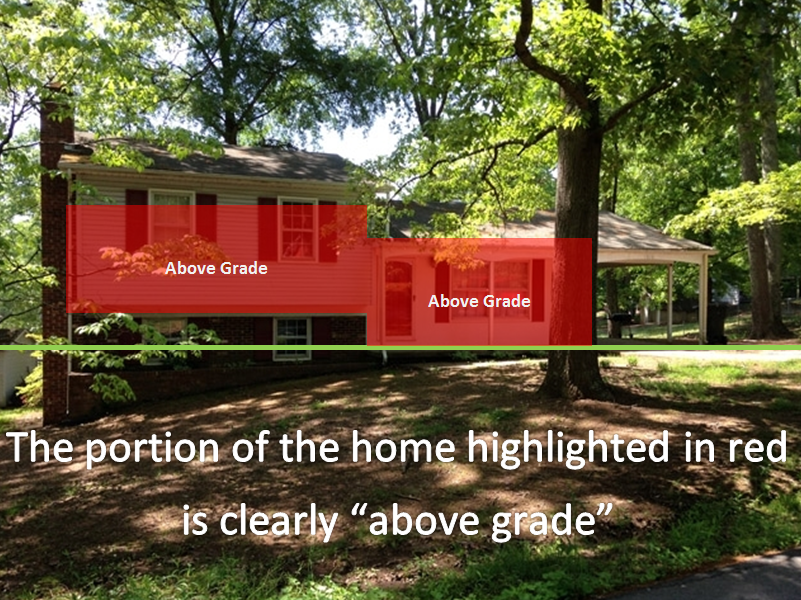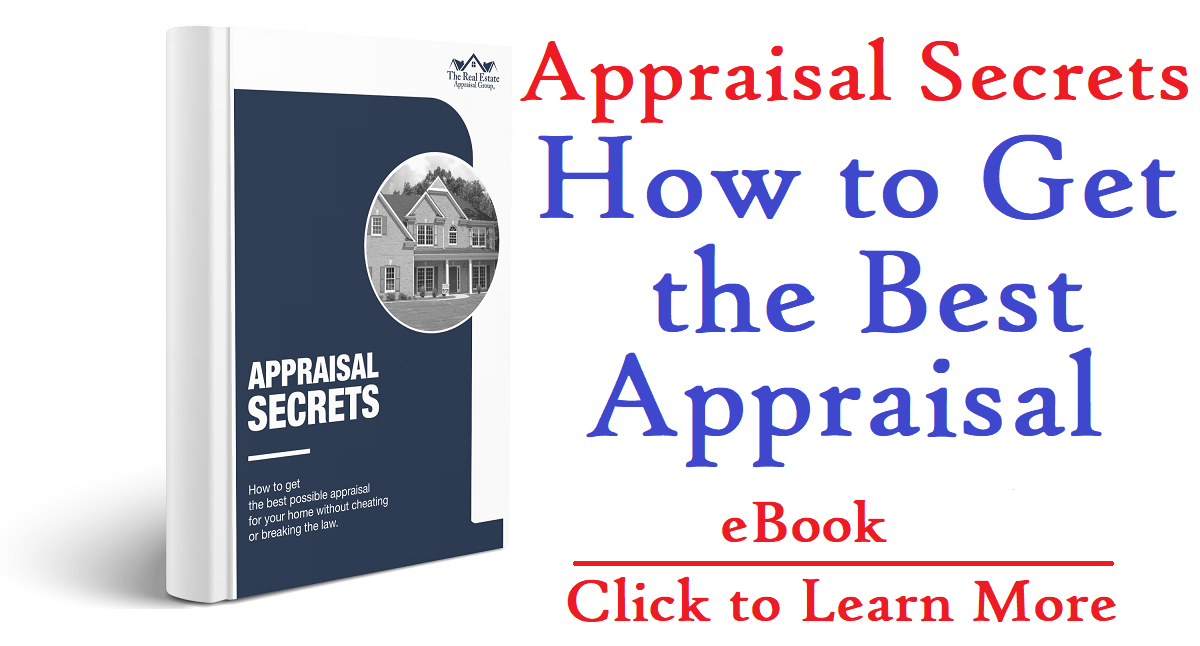
by Jonathan Montgomery | May 27, 2015 | Real Estate Terminology, Uncategorized
Split-level homes can be confusing when it comes to square footage. After a real estate appraisal, we sometimes get questions as to why a 2,000 square foot home was listed as a home with 1,200 square foot living space. Appraisers aren’t trying to rip you off or anything; they’re just following the law. Using the above example, let’s say your home was only measured at 1,200 gross living space- what happened to the other 800 square feet? If you have a home that even slightly qualifies as a split-level, or bi-level home, that extra square footage was most likely measured as below-grade. Living space in real estate is measured in two forms: above-grade and below-grade. Typically, appraisers use the ANSI (American National Standards Institute) or the AMS (American Measurement Standard). The “grade” would be the standard ground-level or elevation for the neighborhood. Where ever you would call the topography of the property “flat” determines where ground level is. Usually the street of the property’s address is a good reference (although this is not ALWAYS the case.) Above grade living space can be defined as “any area of the home that can be heated or cooled by the utilities and is completely above ground-level. If the floor in a room or section of your house is so much as one step below ground level, it can’t be factored into the gross living space. Above grade living space is always worth much more than below grade, except under some extreme or unusual condition. This is why it’s so difficult to measure split-level homes. Below grade living space is the same...

by Jonathan Montgomery | May 20, 2015 | FHA, Real Estate Terminology, Uncategorized
For a Federal Housing Administration (FHA) loan to be approved, a home has to meet more qualifications and standards than your average conventional loan. The roof can’t leak, the wires can’t show, the floors can’t creek, the paint can’t crack… and the list goes on. and on. As FHA appraisals are a bit more complex, real estate appraisers have to get additional certification to perform them. The real estate community usually simplifies whether or not a home will qualify for an FHA loan by whether or not it satisfies the 3 S’s: Safety, Soundness, and Security. The First “S” is Safety. In FHA terms, “Safety refers to the health, habitability and sanitary condition of the property.” The majority of properties that fail an FHA appraisal do so because they aren’t safe. This applies to places in the home that could potentially harm it’s occupants. Here are just a few of the most common safety hazards that cause homes to fail an FHA appraisal: Chipping or peeling paint in homes built before 1978 Damaged or missing handrails on stairs, decks, etc. Exposed electrical wiring (anywhere) Missing carbon monoxide and smoke detectors Mold or rot anywhere in the home Utilities not being safely grounded Outdated well or septic systems Poor topography (such as a yard that doesn’t divert water flow away from the house, or a large ditch in the back yard) Signs of termite infestation The biggest question you can ask yourself when it comes to the safety test is this: would I feel comfortable letting my kids play in this home? If the answer is no, some repairs or...

by The Real Estate Appraisal Group | May 7, 2015 | Uncategorized
Mum Isn’t Always the Word. In case you don’t know, real estate appraisers and most real estate professionals are bound by the Fair Housing Act. The Fair Housing Act exists to protect people against discrimination in the business based on a number of factors, the biggest being: “Race, color, national origin, religion, sex, familial status, or handicap.” This is all perfectly understandable- discrimination is wrong in any business. When it comes to real estate though, the Fair Housing Act can get in the way of a couple burning questions most clients have about the neighborhood, such as… Average Income. (Is it a poor neighborhood? We don’t want to be the wealthiest or poorest neighbors in the area.) Schools. (What are the schools like in the area? How many kids are in private school? ) Education. (Is the neighborhood mostly educated? Did most homeowners graduate high school or have a degree?) Religion. (There’s a Mosque/Church/Temple up the street… Is this neighborhood mostly Christian/Muslim/Jewish?) Sexual Orientation. (Is this a gay-friendly neighborhood?) Crime Statistics. (What’s the crime like in this area… will my children be safe here?) Environmental Concerns. (Is this a green neighborhood? Does most of the neighborhood recycle?) Anyone can understand how a client might be frustrated when their agent can’t share answers to these burning questions. Just because you can’t answer questions like this, however, doesn’t mean you can’t point your clients in the right direction to answer these questions for themselves. Below we’ve put together a list of websites that can easily be searched to research every issue above. Questions About Income While you can’t answer questions about...






Recent Comments